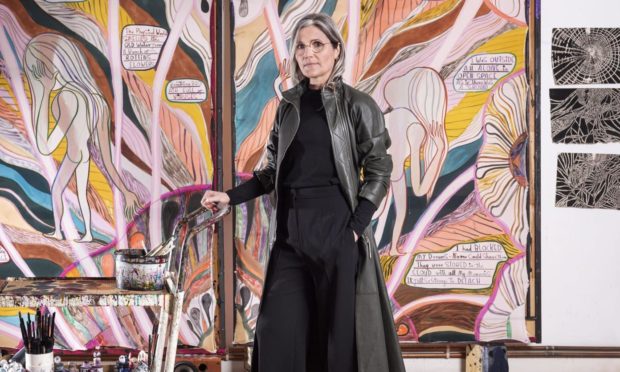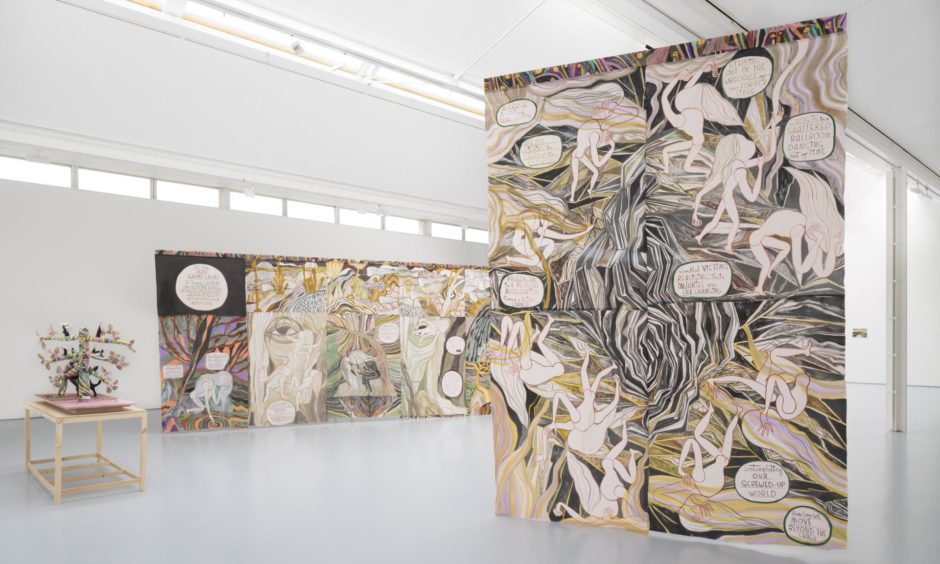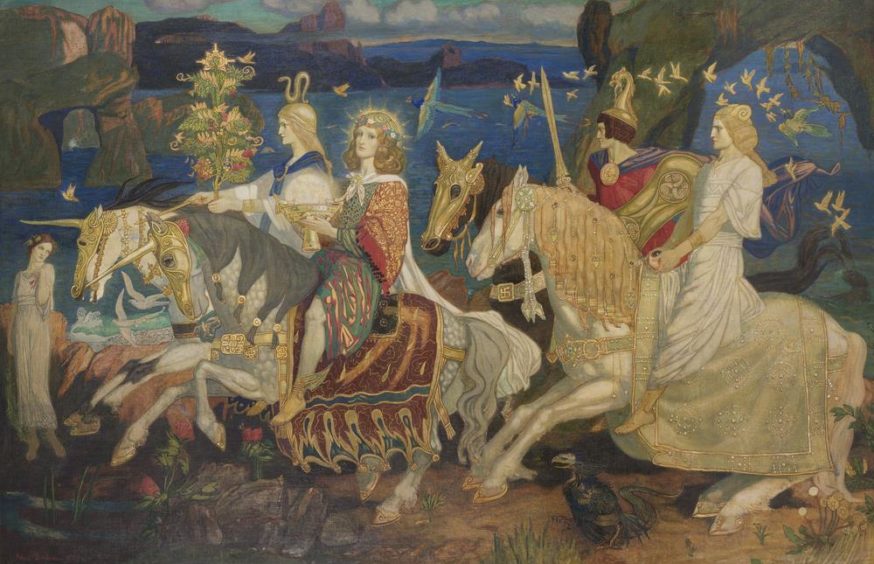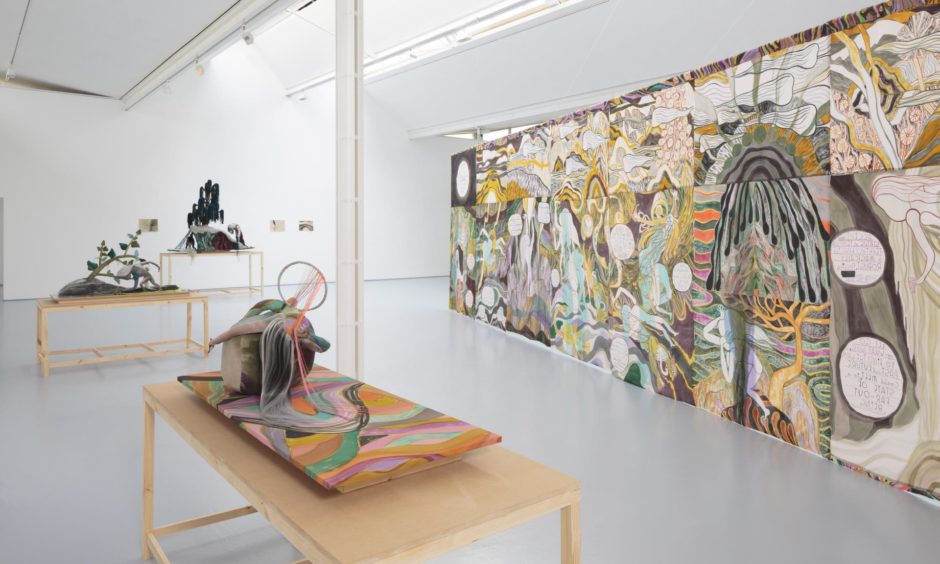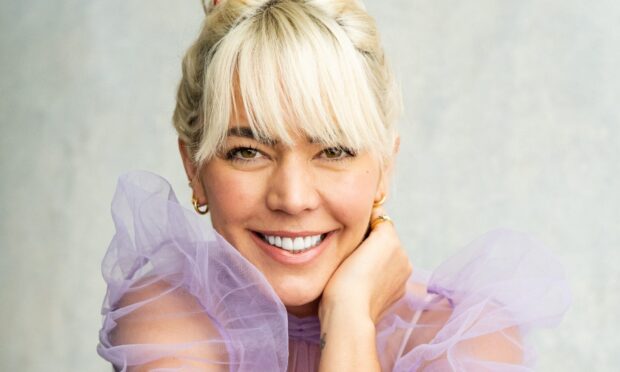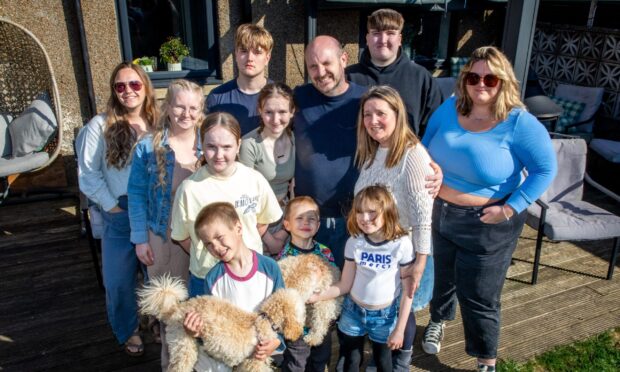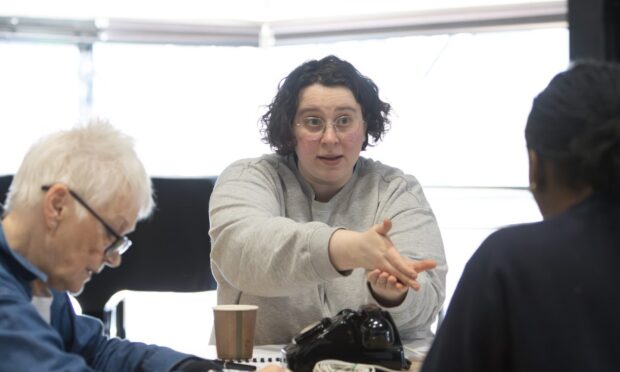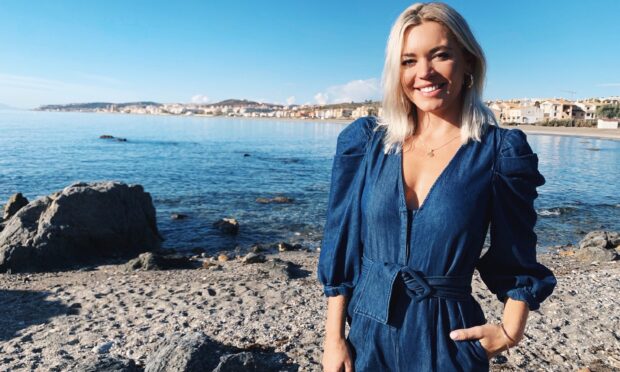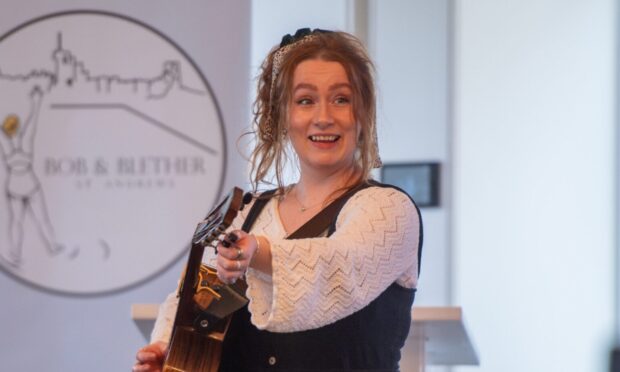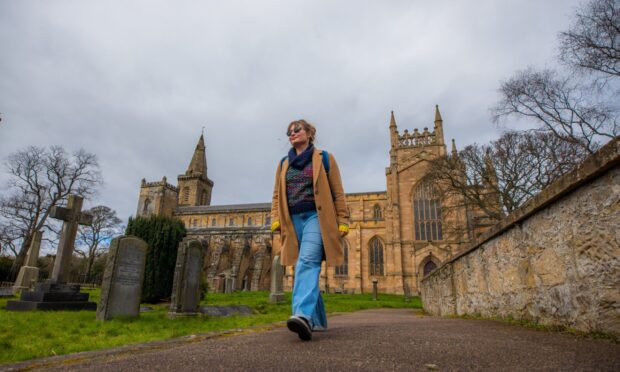The new exhibition at Dundee Contemporary Arts has already gone down in history as its longest-running show – and it hasn’t even opened yet.
Ghost Calls, by Emma Talbot, has been set up and ready to go since December but the city art centre had to close due to the most recent lockdown.
Now it’s finally time for Emma’s exhibit to awaken from its slumber, and the critically-acclaimed artist can’t wait for visitors to experience it when the gallery reopens on April 28.
“It was so strange to complete the show and then leave it sitting there waiting to open,” says London-based Emma.
“Someone described it like Sleeping Beauty, which is a good way of putting it. It’s so important to share the work with others – people experiencing it completes the work, for me.”
It’s an epic painted landscape, full of imagery informed by the geology and history of Scottish landscapes.”
Emma has managed to visit Dundee for research trips and reveals she was inspired by one of the city’s most treasured paintings – The Riders of the Sidhe by John Duncan – which can be seen at McManus Galleries.
She has created new work for Ghost Calls, featuring drawings, paintings, animation and three-dimensional objects to create an imaginary world for visitors to explore.
One of the key works is an immersive wall-hanging – called Ghost Calls – that’s 10 metres long.
Emma explains: “One of two huge paintings on silk, (it) hangs right across the gallery space. It’s an epic painted landscape, full of imagery informed by the geology and history of Scottish landscapes, Celtic birds and patterns and ancient myths surrounding the formation of the terrain.”
In Celtic myth, the Sidhe (pronounced Shee) are the fairy folk who ride forth each year on Midsummer Night.
Dundee-born painter John Duncan (1866–1945) was an important figure in the Celtic Revival in Scottish art, which saw artists develop a renewed interest in the art and culture of the ancient Europeans.
This has also inspired Emma in her work: “I looked closely at The Riders of the Sidhe and was interested in the impetus of Celtic revival, to resuscitate ancient myths as a reaction to the homogenisation of modernism.
“The idea for the show is how the past informs the way we shape our future (how ghosts call to us) and how we, as contemporary citizens – experiencing the seismic changes we have over the last year – start to think about recovery and ways to progress.”
Emma goes on to say Ghost Calls reflects a passing from the way we used to live before the pandemic towards a future where we have choices: “A future that can be reconfigured to put care at its centre – care for nature, for each other and for ourselves.”
Taught to animate
Just before lockdown last year, Emma was awarded the Max Mara biannual Art Prize for Women meaning she will create an exhibition for London’s Whitechapel Gallery.
Despite the pandemic, Emma has managed to continue developing her creativity: “I taught myself to animate from scratch at the beginning of the first lockdown and it has become a major part of my work.
“It has been a year of continually rescheduling and reorganising all my plans for shows, so I’ve learned to roll with it.
“Luckily, the institutions I have been working with have all been dedicated to making it happen one way or another when we can.”
DCA director Beth Bate says: “It’s been a delight to come back into the building again, watching diaries fill up and people start to plan a return.
“It’s such a special exhibition – and bizarrely DCA’s longest-running but, of course, no-one’s actually seen it.
“It’s been strange and eerie for us having this beautiful show installed but not being able to welcome audiences into it.
“I think it will resonate with our visitors… the way it’s asking us to stop, think and slow down. Ask questions about the natural world, our relationship with technology and how we communicate with each other. How we might do things differently in the future.”
Welcome back to DCA
When it comes to visiting, Beth says it’s important people feel safe returning to DCA, and also welcome: “It’s vital we are still able to keep that human, friendly, side of what we do.”
Entry to Ghost Calls is free but ticketed. Tickets can be booked in advance online, over the phone and also in person at the box office. A time slot will be issued and a visit to the exhibition can last up to one hour. Directional signage will be in place.
A programme of events has also been planned, mingling both in-person and online elements. The exhibition will run until August 8.
DCA’s smaller gallery has been turned into a creative space to give families more room to enjoy the activities on offer. Slots can be booked in order to maintain social distancing.
Staff are also “poised and ready” to welcome people back to the cinema, with a provisional date of May 17 issued by the Scottish Government. Official confirmation will follow. Jute Café bar is open from April 26.
Beth says the DCA at Home streaming service will continue to offer hand-picked films: “We’re viewing it very much as our third cinema screen – albeit a digital one.
“DCA still has a very vibrant cinema programme and people have said they feel it’s a mark of quality.”
